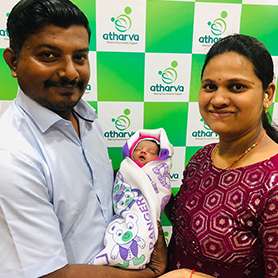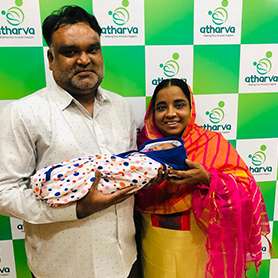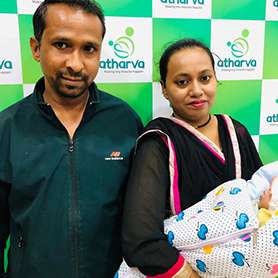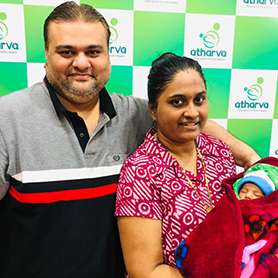Home > Treatment > Egg & Embryo Freezing
The embryo freezing procedure, called cryopreservation, freezes and stores fertilized eggs for future fertility.
The embryo freezing technique enables people to freeze their embryos and preserve their fertility for future pregnancy. When an egg is fertilized
by sperm, it develops into an embryo. This technique is helpful in patients undergoing cancer treatment, gender transition, or who wish to delay
pregnancy for a later age.
During the process of fertilizing eggs with sperm in laboratory settings, sometimes extra embryo are developed. These developed embryos can then
be frozen and utilized in the next cycle. The embryo freezing technique is recommended for couples undergoing treatment for infertility,
like in-vitro fertilization (IVF) or intracytoplasmic sperm injection (ICSI).
The egg freezing procedure is similar to embryo freezing. The only difference is embryo freezing freezes fertilized eggs, whereas egg freezing
freezes unfertilized eggs.
Embryo freezing can be done by two techniques:
Vitrification: Cryoprotective agent (CPA) is added to the embryo.
CPA is a liquid that shields cells from ice crystals and operates
like antifreeze. Embryos are placed immediately into liquid
nitrogen tanks at -196 degree celsius.
Slow freezing: Comparatively smaller amounts of CPA are added
to the embryo. Embryos are then placed in a machine to cool
them down slowly by decreasing the temperature for two hours.
The cooled embryos are then transferred to liquid nitrogen tanks
at -196 degree celsius. This procedure is obsolete.

Frozen embryos are labelled and stored in small straw-like containers.

Infertility specialists usually recommend the techniques to patients experiencing
The freezing embryo technique may prove to be a boon for couples facing infertility concerns or wishing to delay parenthood. Freezing your eggs or
embryo before age 35 can increase your chances of enjoying motherhood by 70-90% in later years.
Your healthcare provider can also help you decide when at which stage, i.e., Cleavage stage (When single multiples to four to eight cells in 72 hrs) or
Blastocyst Stage (When single cell multiples between 200-300 cells in 5-7 days) embryos can be frozen for best results.
The reproductive specialists at Atharva Infertility Centre take great care to examine your fertility status and help you achieve your goals.





11 October 2022

12 October 2022

13 October 2022

Dr. Yeshwant Mane is an Infertility Specialist who
is currently practicing at Atharva Infertility Centre.
Dr. Pallavi Mane is practicing obstetrician and Gynaecologist with special interest in High Risk Pregnancies and Sonologist

Address
Atharva Infertility Centre,
Trimbak Naka Signal, Near Petrol Pump ,Old Mumbai-Agra Road, Nashik 422002, Maharashtra

Contact Info


Working time
Monday 09:00 AM - 09:00 PM
Tuesday 09:00 AM - 09:00 PM
Wednesday 09:00 AM - 09:00 PM
Thursday 09:00 AM - 09:00 PM
Friday 09:00 AM - 09:00 PM
Saturday 09:00 AM - 09:00 PM
Sunday Closed